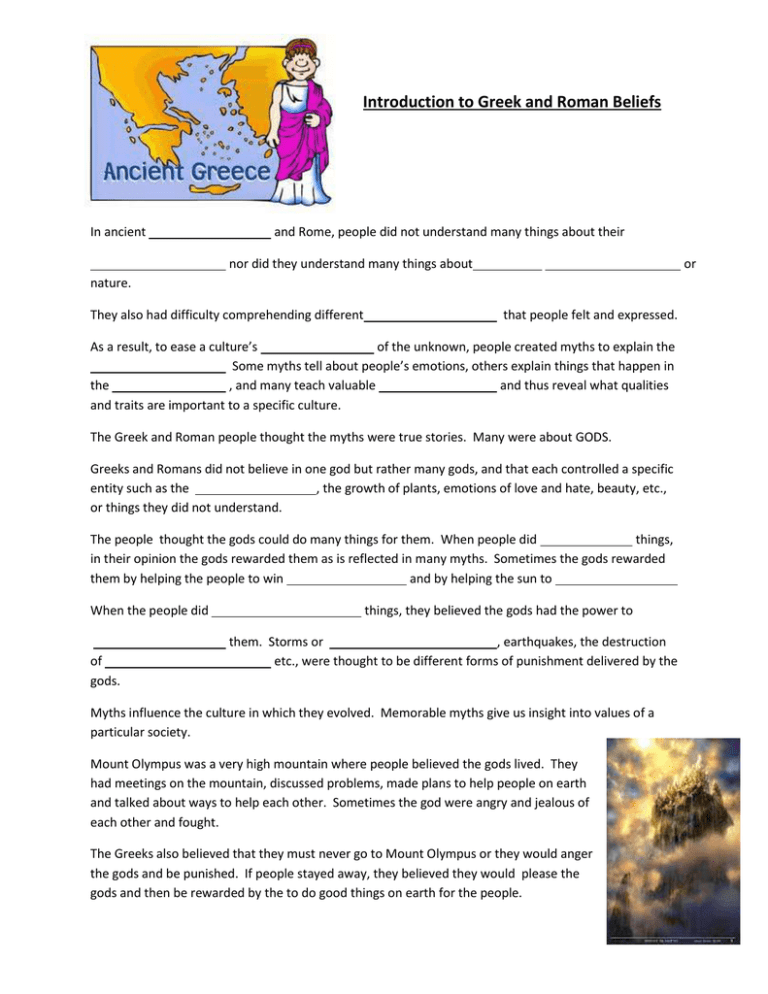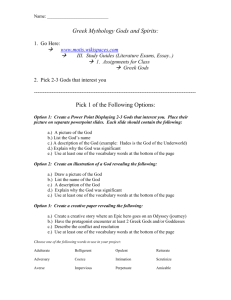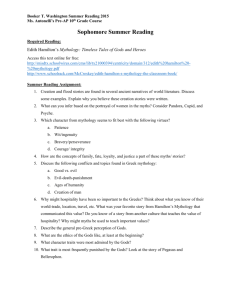Introduction to Greek and Roman Beliefs
advertisement

Introduction to Greek and Roman Beliefs In ancient and Rome, people did not understand many things about their nor did they understand many things about or nature. They also had difficulty comprehending different that people felt and expressed. As a result, to ease a culture’s of the unknown, people created myths to explain the Some myths tell about people’s emotions, others explain things that happen in the , and many teach valuable and thus reveal what qualities and traits are important to a specific culture. The Greek and Roman people thought the myths were true stories. Many were about GODS. Greeks and Romans did not believe in one god but rather many gods, and that each controlled a specific entity such as the , the growth of plants, emotions of love and hate, beauty, etc., or things they did not understand. The people thought the gods could do many things for them. When people did things, in their opinion the gods rewarded them as is reflected in many myths. Sometimes the gods rewarded them by helping the people to win and by helping the sun to When the people did of gods. things, they believed the gods had the power to them. Storms or , earthquakes, the destruction etc., were thought to be different forms of punishment delivered by the Myths influence the culture in which they evolved. Memorable myths give us insight into values of a particular society. Mount Olympus was a very high mountain where people believed the gods lived. They had meetings on the mountain, discussed problems, made plans to help people on earth and talked about ways to help each other. Sometimes the god were angry and jealous of each other and fought. The Greeks also believed that they must never go to Mount Olympus or they would anger the gods and be punished. If people stayed away, they believed they would please the gods and then be rewarded by the to do good things on earth for the people.



